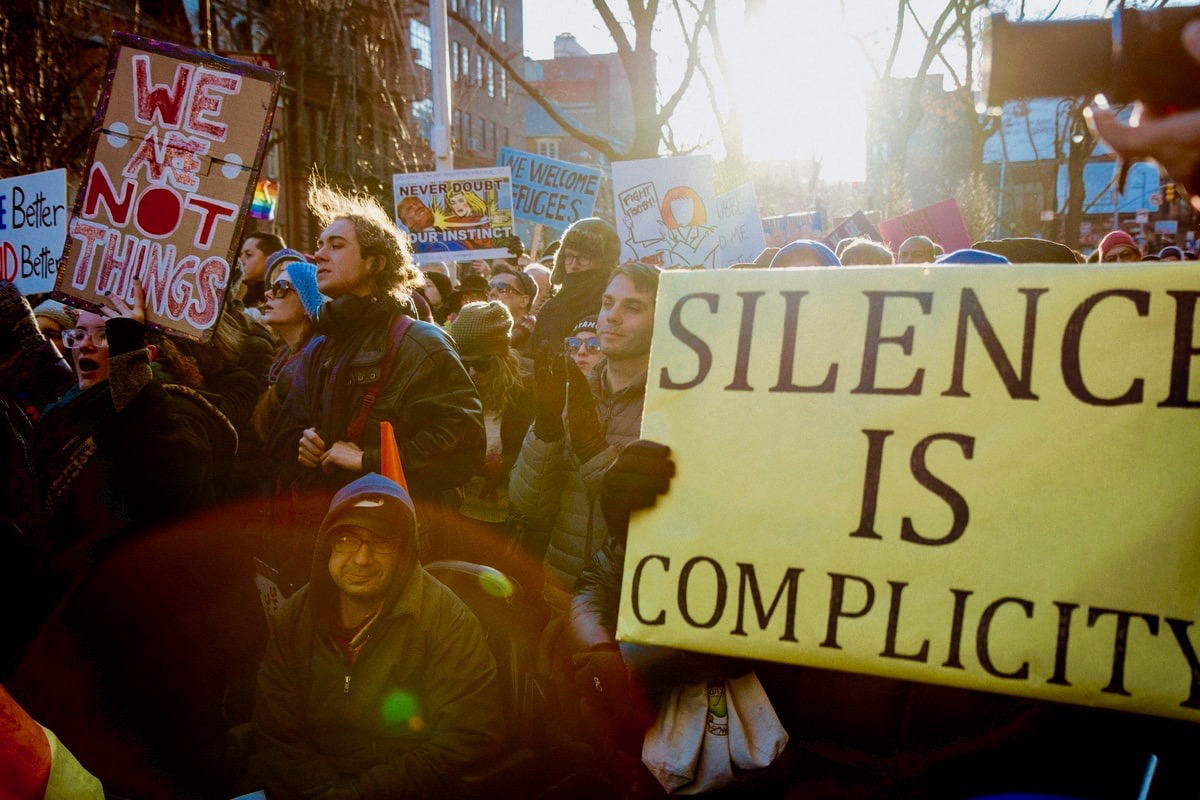Whose Celebration?? 50 Years of Gay Liberation in a Christian Context

By Rev. Peter Laarman
One of my favorite Jesus teachings comes by way of the back-to-back interrelated parables of the feast and the banquet in Luke 14. The idea is that when you give a feast, or hold a celebration, you don’t invite the kinds of people you normally associate with–people who can repay you for your kindness. No, says Jesus, the right way to celebrate is to go out and invite the lost and the least–the poor, the excluded, the socially marginalized and stigmatized.
Not only does this kind of heterogenous gathering serve as an emblem for the eventual Reign of God, but Jesus intends it as a here-and-now ethical mandate–as an invitation to us to do our best in bringing a bit of heaven to earth.
This past weekend, LGBTQ people around the world held a huge celebration of the 50th anniversary of the Stonewall Uprising–an event that is often seen as the turning point in the fight for rights and dignity for queer people.
In London the queer community called it the Pride Jubilee, which to me invokes not just the 50 years of the gay freedom struggle but also alludes to the promised time of freedom for all the oppressed–the very theme Jesus cites at the very start of his ministry when he quotes Isaiah 61:1-3 at his home synagogue in Nazareth and proclaims the “year of the Lord’s favor,” the jubilee year.
How I wish that all gay people were committed to this wider challenge of creating jubilee (a.k.a. justice) for everyone! How I wish that my white gay brothers in particular would learn to practice intersectionality rather than merely pursue a narrow acceptance for themselves.
The gay folks who, in a material sense, have most reason to celebrate Pride 50–relatively affluent white gay men like me– also tend to be the most tone-deaf when it comes to the wider jubilee theme. And that’s inexcusable at a time when so many are at risk and suffering.
I am currently living in one of the gayest places on earth–West Hollywood, CA–where the bars and the hookup scene are permeated with ugly anti-Black racism and where our “out and proud” gay political leaders cozy up to high-end real estate developers at the expense of low-income people, and low-income people of color in particular. Police abuse of younger queer people, especially younger trans women of color, is routine here, and the white gay establishment has had nothing to say about it, in some cases even cheering the police on. Youth who are considered too flamboyant, too different, still struggle to find work and shelter.
In 1969 the Stonewall Inn was a disgusting dive bar run by the Mafia. Respectable gay men wouldn’t dream of going there. That’s why “ironic” is too mild a word to describe rich white gay men celebrating the Stonewall uprising fifty years later. The Stonewall regulars who took on the police and rioted for two nights in Greenwich Village were overwhelming young kids who were too poor, too Black, and/or too femme to be able to get into any other gay space.
In a word, it was the most marginal among queer New Yorkers who launched a revolution whose main benefits have accrued to the most privileged. It goes without saying that the Stonewall rebels, and their latter-day successors, are the ones who should be remembered and honored most of all.
I’m all for Pride celebrations, especially this year, but let’s make sure that after the celebrations have ended, everyone is still welcomed at the table in a way that would make Jesus smile. Let’s make that table reflect the justice that springs forth when “love wins” and when God’s Reign takes hold in earnest.
###
Rev. Peter Laarman is a Faith And Reason board member and formerly directed Progressive Christians Uniting, the LA-based network of activist individuals and congregations that first launched Justice Not Jails in 2012 as a multifaith initiative. He also served as the senior minister of New York’s Judson Memorial Church from 1994 to 2004. Ordained in the United Church of Christ, Peter spent 15 years as a labor movement strategist and communications specialist prior to training for ministry. He lives in Los Angeles.
